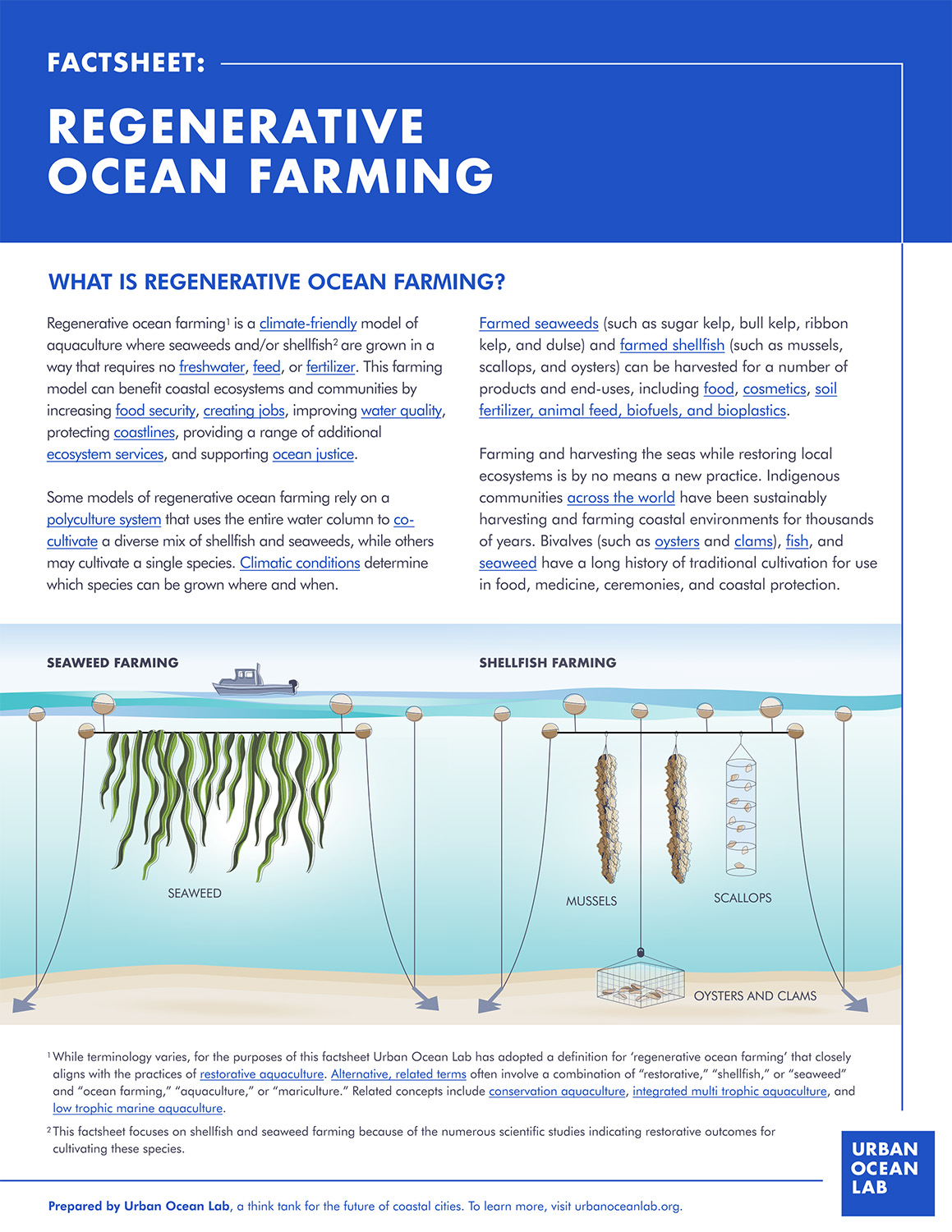Overview
Regenerative ocean farming is a climate-friendly model of aquaculture where seaweeds and/or shellfish are grown in a
way that requires no freshwater, feed, or fertilizer. This farming model can benefit coastal ecosystems and
communities by increasing food security, creating jobs, improving water quality, protecting coastlines, providing a
range of additional ecosystem services, and supporting ocean justice.
This factsheet offers a primer explaining what, exactly, regenerative ocean farming is and how it can provide climate
solutions.
CREATED BY
Key Recommendations
Improve permitting processes and regulations
Entry into the industry can be time consuming and costly due in part to complex and cumbersome regulatory and permitting processes that vary from state to state and involve multiple agencies across all levels of government. To improve permitting efficiency, state agencies need adequate funding and resources to increase staffing, improve inter-agency coordination, and develop permitting portals.
Invest in farms and a skilled workforce
Developing affordable training programs for seaweed and shellfish farmers can help increase access to resources and provide needed support. Incubator programs, like the Port of San Diego’s, can provide new and prospective ocean farmers with support such as subject matter expertise, market access, and funding. Financing and low-interest loans can help to ensure that regenerative ocean farming is accessible.
Increase market demand
Despite a rapidly growing seaweed industry, demand for seaweed is still lagging. Investing in the development of more seaweed-based products like kelp burgers and seaweed fertilizers can help support regenerative ocean farmers by increasing demand for their crops. Advancements in processing technology propelled by research and development can further support industry growth.
Fund further studies into benefits and impacts
More research on the potential positive and negative ecological and socio-economic impacts of scaling regenerative ocean farming is necessary, including further research on the long-term carbon sequestration potential of farmed seaweed and shellfish.
Protect working waterfronts and small-scale farms
Funding the revitalization of working waterfronts that offer co-operative infrastructure (including shared equipment, processing facilities, and storage) can help small- to medium-scale ocean farmers access and compete in wider markets while helping to sustainably grow the industry.
